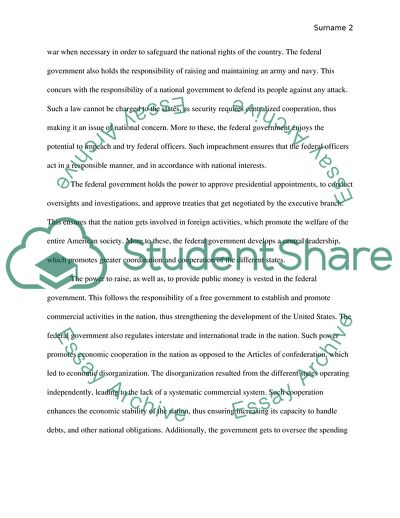Cite this document
(Specific Powers in Federal Government Vested by the U.S. Constitution Coursework Example | Topics and Well Written Essays - 1500 words, n.d.)
Specific Powers in Federal Government Vested by the U.S. Constitution Coursework Example | Topics and Well Written Essays - 1500 words. https://studentshare.org/politics/1833206-specific-powers-vested-in-the-federal-government-by-the-us-constitution-and-assess-why-these-powers-were-vested-in-the-federal-government
Specific Powers in Federal Government Vested by the U.S. Constitution Coursework Example | Topics and Well Written Essays - 1500 words. https://studentshare.org/politics/1833206-specific-powers-vested-in-the-federal-government-by-the-us-constitution-and-assess-why-these-powers-were-vested-in-the-federal-government
(Specific Powers in Federal Government Vested by the U.S. Constitution Coursework Example | Topics and Well Written Essays - 1500 Words)
Specific Powers in Federal Government Vested by the U.S. Constitution Coursework Example | Topics and Well Written Essays - 1500 Words. https://studentshare.org/politics/1833206-specific-powers-vested-in-the-federal-government-by-the-us-constitution-and-assess-why-these-powers-were-vested-in-the-federal-government.
Specific Powers in Federal Government Vested by the U.S. Constitution Coursework Example | Topics and Well Written Essays - 1500 Words. https://studentshare.org/politics/1833206-specific-powers-vested-in-the-federal-government-by-the-us-constitution-and-assess-why-these-powers-were-vested-in-the-federal-government.
“Specific Powers in Federal Government Vested by the U.S. Constitution Coursework Example | Topics and Well Written Essays - 1500 Words”. https://studentshare.org/politics/1833206-specific-powers-vested-in-the-federal-government-by-the-us-constitution-and-assess-why-these-powers-were-vested-in-the-federal-government.


